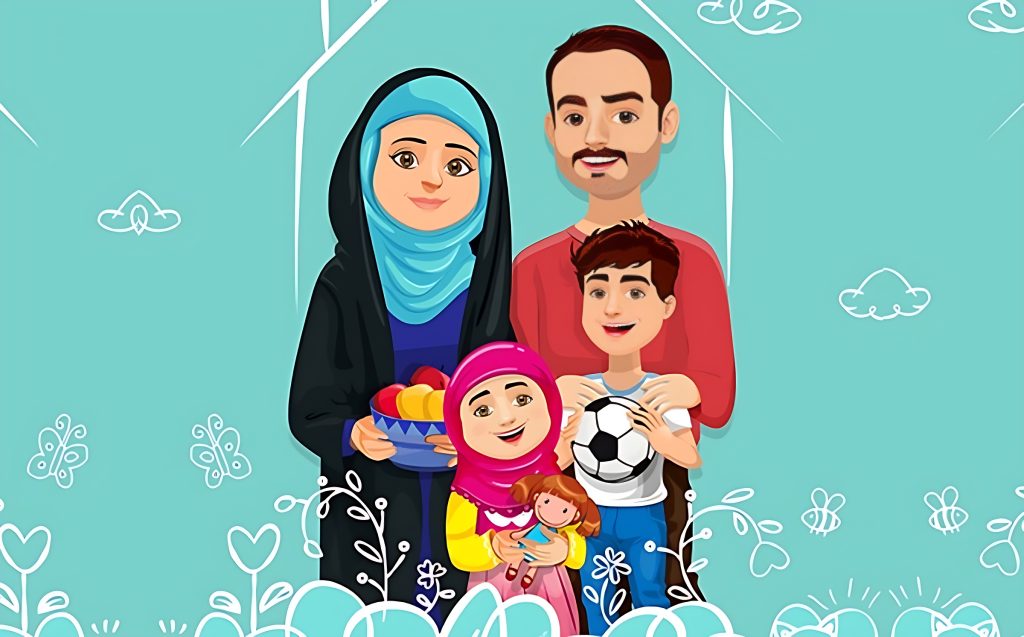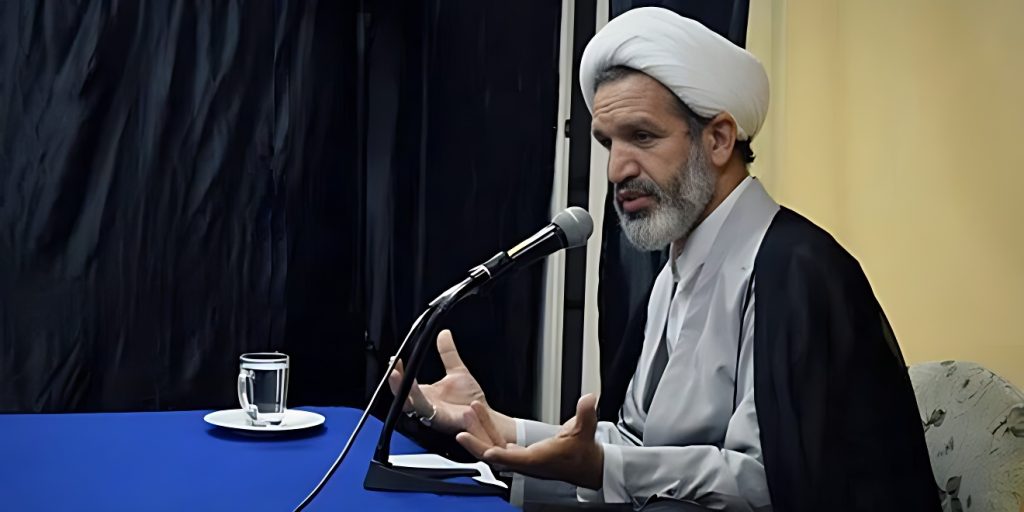Course Overview
Course Subject: Jurisprudence of Education, Training, and Upbringing (Fiqh al-Tarbiya)
Instructor: Shaykh Qadīr ʿAlī Shams
Day and Time: Saturdays and Sundays, 9-10 a.m.
Location: Dār al-Hudā School, Ṣafāʾiya St., Qom, Iran
Course in Social Media: https://eitaa.com/fiqhci
About the Course
It seems that the term “al-tarbiya” does not have an exact equivalent in English and it can be translated into the three concepts of “education, training and upbringing”, and therefore, fiqh al-tarbiya (jurisprudence of education, training, and upbringing) deals with all these fields.
Islam has rulings for all optional behaviors and there is no optional act, unless a ruling from the five rules of the sharīʿa (unlawfulness, obligation, recommendation, detestability, and permissibility) applies to it, and this is the presupposition on which jurisprudence and ijtihād are based. Fiqh al-tarbiya is a part of jurisprudence that deals with determining the rules for the behaviors of a murabbī (the one who teaches, like parents, teachers, educators and trainers) and a mutarabbī (the one who learns, like children and students) and states one of the five rules for their behavior. Although fiqh al-tarbiya may be considered a new title, its roots are found in traditional jurisprudence.

Fiqh al-tarbiya has a very wide scope among Islamic and human sciences. Tarbiya spans the length of a person’s life and even includes the underlying factors before birth and includes all activities that somehow influence the development of human existence. Also, tarbiya is an all-round and all-encompassing subject and includes all aspects of human existence, including physical, mental, moral, intellectual, and the like. On the other hand, jurisprudence has a huge scope and there are and do’s and don’ts for all stages of a person’s life and even before their birth.
A brief look at the fields of jurisprudence and the presented categories shows that jurisprudence does not deal with a specific aspect of human life, rather all aspects of human existence are nurtured in the light of adherence to Islamic laws, and in jurisprudence, there are rulings related to providing physical health as well as providing livelihood and material affairs, as well as rulings related to intellectual and mental health, as well as individual and social rulings. Therefore, the territorial extent of these two areas in common dimensions and aspects provides the context for the interaction of the two. The most important area that enables the interaction between jurisprudence and tarbiya is the influence of jurisprudence on the foundations, principles, goals, levels, stages, factors, dimensions (physical, moral, social and intellectual) and methods of tarbiya.
Based on this, the main function of fiqh al-tarbiya is to determine the religious ruling in the process of tarbiya, since it is always associated with the activities and actions of the murabbī and sometimes the activities of the mutarabbī. It should be noted that the topics of fiqh al-tarbiya are sometimes collected from different chapters of jurisprudence, such as the limits of punishing children, forcing children to pray or perform other acts of worship, preventing them from forbidden things, encouraging them to perform obligations or recommendations and sometimes new titles, topics and issues in the field of tarbiya are examined by jurisprudence.

The second function of fiqh al-tarbiya is to discover religious views about the components and elements of tarbiya. In this function, by examining the rulings of jurisprudence -which are considered the superstructures of sharīʿa law- the components and elements of tarbiya -which are the foundations of the rulings- are deduced. In other words, the goals of tarbiya can be achieved by paying attention and examining jurisprudential rulings, just as the principles of tarbiya and its methods can also be discovered by examining jurisprudential rulings, and as a result, an education system, including goals, foundations, principles, methods and stages of tarbiya is presented.
Among the subjects that are discussed in fiqh al-tarbiya, the following can be mentioned: the rules of fiqh al-tarbiya, teaching and learning of religion, teaching and learning of sciences and intellectual knowledge, teaching and learning of intuitive knowledge, teaching and learning of skills and jobs, the duties of the religious scholars and elites in tarbiya, etiquettes of education, moral qualifications of teachers, general principles of tarbiya, physical tarbiya, intellectual tarbiya, religious tarbiya, devotional tarbiya, moral tarbiya, sexual tarbiya, social tarbiya, political tarbiya, economic tarbiya, technical and artistic tarbiya, duties of the family in tarbiya, teaching methods and techniques, duties of the government in tarbiya, duties of the educational centers in tarbiya, and the duties of the general public.
About the Instructor
Born in 1347 AH (solar) in Isfahan, Iran, Shaykh Qadīr ʿAlī Shams Joined the Islamic Seminary of Isfahan in 1361 AH (solar) and the Islamic Seminary of Qom in 1368 AH (solar). Among his teachers, mention can be made of Shaykh Ganjī, Shaykh Iʿtimādī, Ayatollah Ustādī, Ayatollah Dūzdūzānī, and Ayatollah Tabrīzī. As a researcher, he has collaborated with the Baqiyyat Allah Institute and the Dār al-Hudā Institute and has taught religious courses in several schools, including Imām Bāqir School. He has also acted as a supervisor, advisor or referee in several theses in the Islamic Seminary of Qom.

Among his advanced courses of jurisprudence, his course on ethical jurisprudence is noteworthy. Among the topics that he has expertly addressed in this course, the following can be mentioned: greetings and salutations, keeping ties with relatives, suspicion, mockery, envy, pride, hypocrisy, enmity, bigotry, anger, deceit, justice, and oppression. His views and discussions in this course are published in the book Fiqh al-Akhlāq (Ethical Jurisprudence).
Publications by the Instructor
- Fiqh al-Akhlāq (Ethical Jurisprudence), 3 vols., 1402, Islamic Seminary of Qom Publication.
- Sharḥ Kitāb al-Shakhṣ al-ʾIʿtibārī (a Commentary on the Book Conventional Person), 2 vols., 1402, Islamic Seminary of Qom Publication.
- Bāzkhānī-yi Fiqhī-yi Qahr yā Hijrān (a Jurisprudential Analysis of Breaking off Friendship), in Pazhūhish-hāyi Fiqhī, no. 7, 1377.
